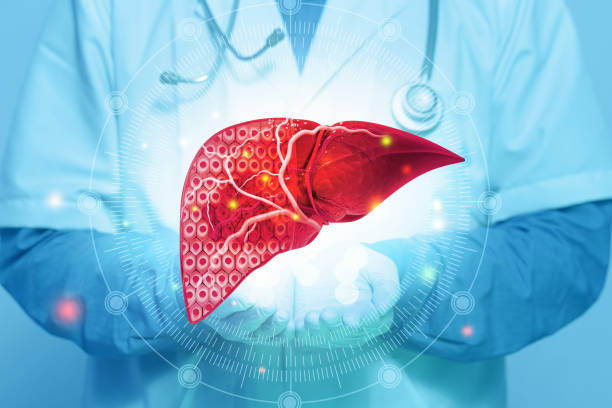
Liver cancer is sometimes referred to as a “silent disease” because early liver cancer often doesn’t cause symptoms. As it grows, symptoms start becoming prominent. Liver cancer is unique in that it occurs mostly in people who have some liver damage.
The most common type of primary liver cancer is Hepatocellular carcinoma (HCC). The risk of hepatocellular carcinoma is higher in people with long-term liver diseases and is also higher if the liver is scarred by infection with hepatitis B or hepatitis C.
Hepatocellular carcinoma is also observed in people who drink large amounts of alcohol and have fat accumulation in the liver.
Symptoms of hepatocellular carcinoma
Most people may not have any symptoms in the early stages of primary liver cancer. When signs and symptoms do appear, they may include:
- Losing weight without a reason
- Loss of appetite
- Upper abdominal pain
- Nausea and vomiting
- General weakness and fatigue
- Abdominal swelling
- Yellow discoloration of your skin and the whites of your eyes (jaundice)
- White, chalky stools
Common risk factors
- Viral Hepatitis
- Cirrhosis
- Inherited Metabolic Diseases
- Diabetes and Obesity
- Anabolic Steroids
- Arsenic poisoning
Diagnosis of hepatocellular carcinoma by usual means is done through
- Blood tests to measure liver function
- Imaging tests, such as CT and MRI
- Liver biopsy, in some cases, to remove a sample of liver tissue for laboratory testing
Role of PIVKA-II in screening hepatocellular carcinoma
The incidence of Hepatocellular carcinoma (HCC) is increasing worldwide and hence, an early diagnosis can improve the prognosis. The chances of surviving in HCC patients may be significantly increased by the in-time diagnosis that might make it possible to choose the best treatment for each individual patient
Protein induced by vitamin K absence-II (PIVKA-II) is a potential screening marker for hepatocellular carcinoma (HCC).
PIVKA-II as an effective tumour marker for hepatocellular carcinoma(HCC) has been widely used in western countries where most cases are hepatitis C virus(HCV) related. PIVKA-II is a useful tool for the diagnostic characterization of ultrasound-detected liver nodules, especially in cirrhotic patients.
PIVKA-II being a useful tool for the diagnosis of liver nodules in cirrhotic patients provides high diagnostic accuracy for HCC when combined with AFP.
Protein induced by vitamin K absence-II (PIVKA-II) which is also known as des-γ-carboxy-prothrombin has been identified as a serum biomarker linked to HCC. It is an abnormal prothrombin molecule produced as a consequence of an acquired defect in the posttranslational carboxylation of the prothrombin precursor in malignant cells.
A quite large body of evidence indicates that PIVKA-II levels in the blood are increased in patients with HCC and importantly an increasing amount of data indicates that it is more sensitive than AFP for differentiating HCC at all stages from patients with cirrhosis or chronic hepatitis.
In addition, several studies from Asian countries have shown that serum PIVKA-II levels correlate with the HCC stage, as well as with survival of HCC patients, and a combination of PIVKA-II and AFP is currently used for HCC diagnosis and surveillance in accordance with the recommendations of the Clinical Practice Guidelines for HCC.
To Conclude
The degree of liver damage plays a very important role in determining what treatment options are possible for an individual patient. Treatment for liver cancer has the most favourable outcome when detected and treated in the early stages before it has spread. Cancer marker like PIVKA-II has a significant role to play in the apt diagnosis of the condition of your liver.

